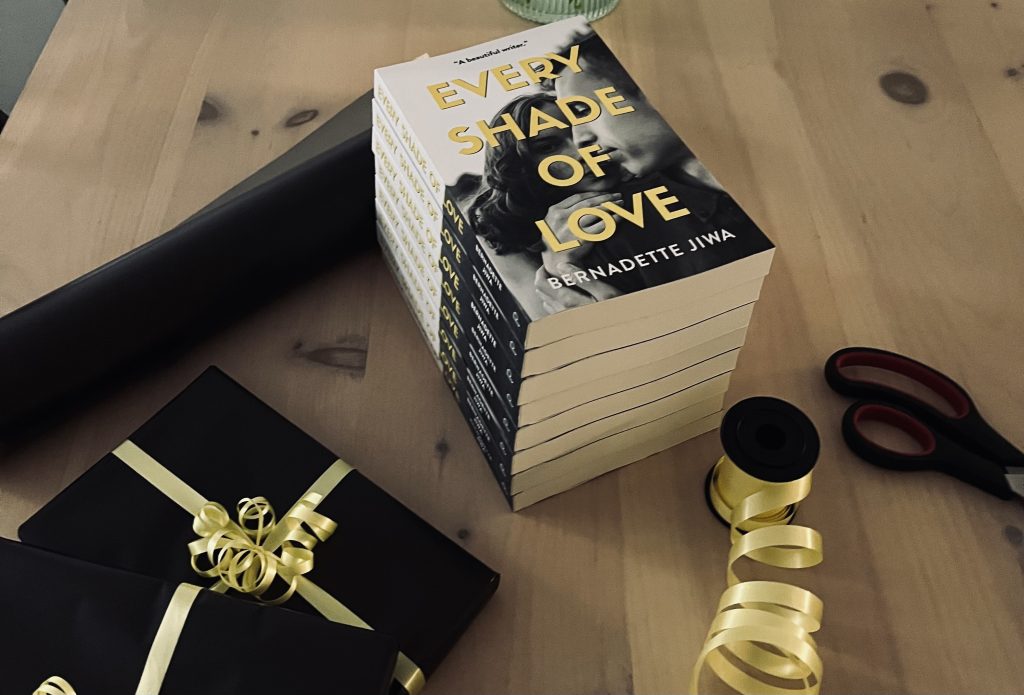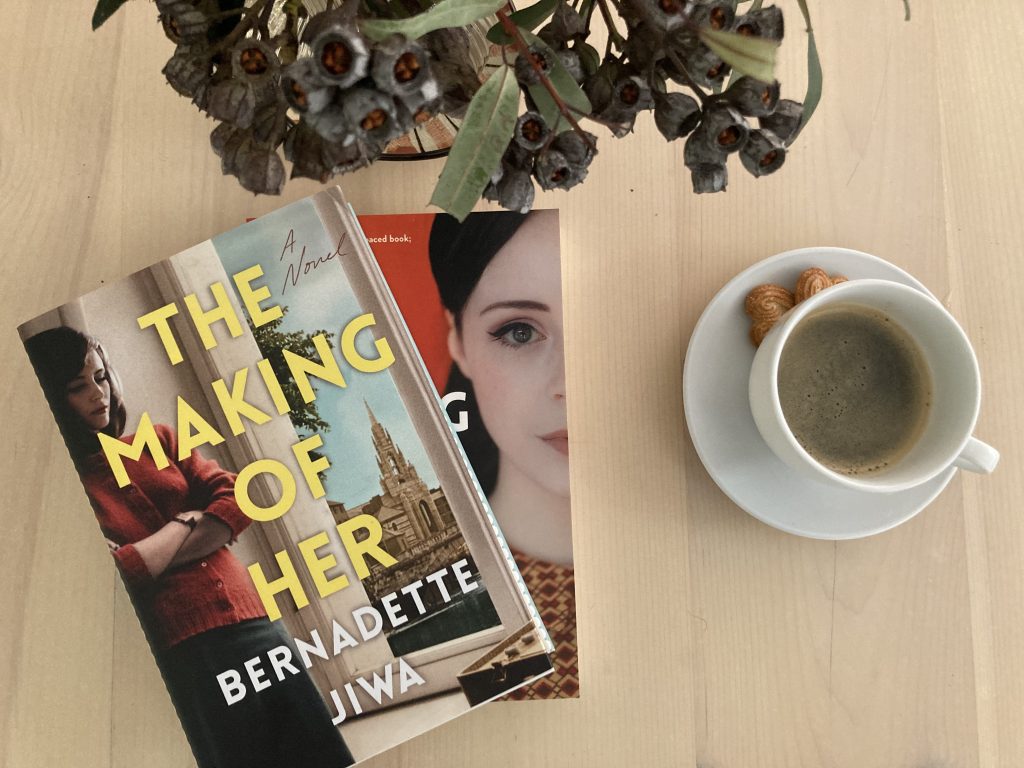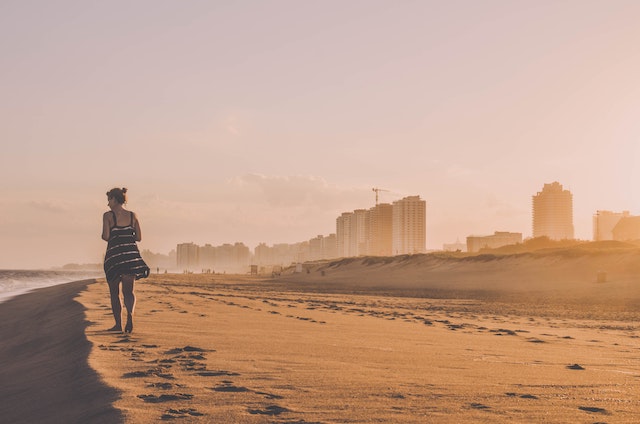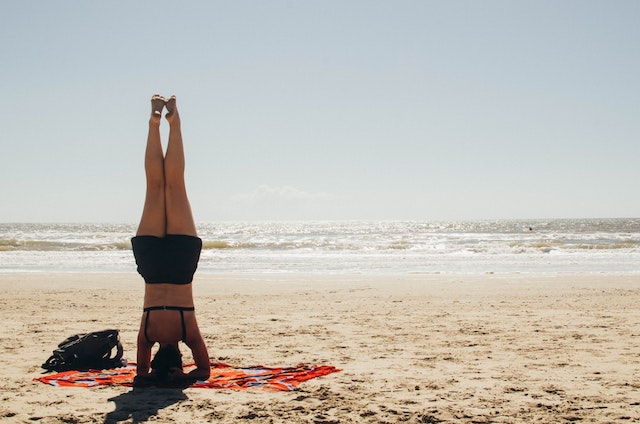Unlock the Magic in Your Story Now
Get the Free 20 questions to Ask Before Launching Your Idea workbook when you sign up for occasional updates.
Get the Free 20 questions to Ask Before Launching Your Idea workbook when you sign up for occasional updates.
Doing The Work Anyway
filed in Creativity, Meaningful Work, News, Storytelling, Worldview

Some people might say it takes a certain kind of madness to work on a project nobody is waiting for. Who in their right mind devotes months or even years to creating something no one said they wanted? And yet, that’s what our art requires of us. We show up and do it anyway, not because someone asked us to but because our persistent heart tells us we must.
Recently, I published my latest novel, Every Shade of Love. Nobody asked me to write it. No editor was eagerly waiting for me to turn in the manuscript, no publishing house shouting from the rooftops about its imminent arrival.
You didn’t say you wanted this book, but I spent nearly three years making it anyway, with love, for you.
Share this article
Creativity Is A Journey
filed in Creativity, Meaningful Work, Storytelling
 Eleven years ago, I discovered blogging. Inspired by my clients’ stories and their questions, I began posting weekly, then daily for a while. I hadn’t written for an audience since I left school more than thirty years before. Nobody was more surprised than I was to discover that people wanted to read what I wrote here and in the books that followed.
Eleven years ago, I discovered blogging. Inspired by my clients’ stories and their questions, I began posting weekly, then daily for a while. I hadn’t written for an audience since I left school more than thirty years before. Nobody was more surprised than I was to discover that people wanted to read what I wrote here and in the books that followed.
Fast forward to 2019, when I decided it was finally time to follow my heart and begin writing my debut novel set in Dublin. And today, I’m thrilled to share it with you. The Making of Her publishes in the U.S. today and is available through all great bookstores. The Australian edition was published in May with an equally gorgeous cover.
You can hear a sample of Aoife McMahon’s brilliant audiobook performance here.
If I hadn’t spent a decade blogging, I wouldn’t have had the courage to begin writing a novel. I have every reader who subscribed to, read and shared my blog to thank for showing me that creativity is a journey, not a destination.
Share this article
What Great Storytellers Know
filed in Story Skills
 My idea of a good non-fiction book is one without filler that I read to the end without skimming. I like to invest in a book that will teach me something in an afternoon that I can use for a lifetime. Those are the goals I had in mind when I wrote my new book, What Great Storytellers Know.
My idea of a good non-fiction book is one without filler that I read to the end without skimming. I like to invest in a book that will teach me something in an afternoon that I can use for a lifetime. Those are the goals I had in mind when I wrote my new book, What Great Storytellers Know.
We’ve always used stories to entertain, teach, and inspire. And despite what we’re often led to believe, storytelling is not an innate ability. It’s a skill anyone—from marketers and professional communicators to parents and teachers—can, and should, master.
In What Great Storytellers Know, I take you through the steps of finding and strengthening your storytelling muscles. I share the seven skills to being a great storyteller and show you how to cultivate them to build trust and connection.
You’ll discover how to become more fully present and in tune with the world around you; how to find the extraordinary in the everyday and the power in the particular; how to speak from the heart and express your truth; and how to recognise, and replicate, the patterns in strong stories to chart an emotional path for your audiences.
You’ll also experience how the power of storytelling extends not just to the listener, but to the storyteller. As you find your voice, you’ll create the change you want to see—whether to inspire hope in the hearts of your team, to build trust with your customers, or to strengthen a relationship.
It’s been a joy and a privilege to write this book for you.
Share this article
Walking As Yourself
 The legendary British actress, Helen Mirren, says the hardest thing you can do is walk as yourself. She may have been speaking about acting when she said this, but I think her words carry wisdom we can use beyond the stage.
The legendary British actress, Helen Mirren, says the hardest thing you can do is walk as yourself. She may have been speaking about acting when she said this, but I think her words carry wisdom we can use beyond the stage.
Society conditions us to fit in from a young age. The way to fit in is not to do anything out of the ordinary. By definition, that means ignoring possibilities and opportunities to explore different paths.
But progress, fulfilment and joy are a by-product of exploration.
Ironically, what the world that tries to make us conform needs most from us, is for us to walk as ourselves. To contribute as only we can. To find our voice and follow our path, then to shine a light for others as we go.

Images by Paz Arando
Share this article
On Sufficiency
filed in Worldview

My favourite childhood stories were those written by Laura Ingalls Wilder about her pioneer family and life in the Big Woods of Wisconsin. Her family lived on their wits. They were grateful for what they had and prepared for uncertain seasons. In tough times they made do and relied on their skills, but also turned to their community for help.
The world of the Ingalls Wilder books was in sharp contrast to the era of the TV industrial complex I was growing up in. Non-stop advertising taught us not only that what we had wasn’t sufficient. But that somehow we were not sufficient, unless wore the right jeans, looked a certain way and our hair smelled of green apple shampoo.
We lived in a world where homemade was seen as the choice for people with little freedom to choose. A time when it became easier to replace than repair and making do was a sign of not having enough.
Now, in this time, when our movements and choices are restricted, those of us lucky enough to still be healthy and working are relearning what it means to be grateful for what we have. We’re finding joy in reclaiming skills that nourish us. We are rekindling our resilience. And we are remembering that we are more than enough.
Image by Soroush Karimi
Share this article
The Limitations Of Labels
filed in Worldview

Last week, an Australian journalist was quoted in the media as saying that millennial workers lack resilience. She expressed concern over their need for thanks and hugs.
On the same day, our millennial plumber was due to arrive to investigate a leak. Even though we’re isolating during the pandemic, this was an essential repair, and tradespeople were still working.
That morning, he called ahead to let me know he’d be on time. When I opened the door, he was standing on the front doorstep masked-up, next to his new Gen Z apprentice. They were already removing their boots.
‘The last job we were on was messy,’ the plumber explained. ‘We don’t want to trail mud all through your house.’
He made small talk about the only thing anyone is talking about—the virus.
‘A guy working on our last job wasn’t wearing a mask,’ he said. ‘I have heaps in the van. I offered him one, but he wouldn’t take it. It’s up to every one of us to do the right thing.’
The two young men climbed onto the roof. I could hear the older, more experienced one calmly and carefully teaching the younger one as he began to investigate the problem. When they were done, the apprentice asked if he could borrow a dustpan and brush to sweep up before they left.
As they were packing up, I couldn’t help thinking about how much trust I had in these two young men.
Sometimes labels convey meaning. But often they are an unhelpful barrier to mutual respect and shared understanding. The best judge of character isn’t a label prescribed according to the date or circumstances of our birth. It’s how each of us shows up to contribute.
Image by Linus Francis
Share this article
Trust And Traction
 When we want to get a project off the ground, we are often confused about the best way to achieve our goal.
When we want to get a project off the ground, we are often confused about the best way to achieve our goal.
We believe if we could only reach more people, we’d immediately have traction.
But reach is a poor substitute for the trust of a handful of the right people.
A deep connection trumps fleeting attention every time.
Image by Daniel Funes Fuentes
Share this article
A Stake In The Ground
filed in Meaningful Work, Strategy, Success

Years ago, when the owner of our local bakery decided to bake only gluten-free bread and cakes, it would have sounded like a risky strategy. Many people would have advised her to sell both conventional baked goods alongside her gluten-free loaves. Instead, she put a stake in the ground.
We are naturally inclined to want to hedge our bets. But it can be liberating to say this is the real work I care about doing. These are the exact people I want to serve.
Those decisions about what’s important to us and how to do our best work can mean the difference between standing out and fitting in. Joy and misery. Success and failure.
Whatever work you do, it’s helpful to reflect on who you want to be to whom.
Image by Maranda Vandergriff
Share this article
Storytelling For The Rest Of Us
filed in Story Skills, Storytelling, Success

Every decision you’ve ever made was influenced by a story—every single one. From the decision about whether to wear a mask during a pandemic, to the charities you choose to support.
A story you heard, the story you believed or that story you told yourself, had an impact on those choices.
If stories are our most persuasive technology, why don’t we do more to put them to work? Why don’t we leverage the power of stories every day in our work and our lives?
Over the past fifty years, we’ve come to believe that storytelling is a professional discipline. A skill for the master storytellers at the Disney’s or the Saatchi and Saatchi’s of the world. We’ve stopped honing the story skills that came so naturally to our ancestors. We’ve forgotten how to tell small, powerful, everyday stories.
I’m on a mission to change that and to help more people leverage the power of storytelling to become their most inspiring selves.
You don’t need an epic story to be a great storyteller. You just need to adopt the posture of a storyteller and to practice the craft. Together with a team of incredible coaches, that’s what I’ve been helping people to do for the past year.
If you want to reclaim your story skills, you can sign up for details about our next workshop.
Image by Photo by Niko Virtanen license Creative Commons BY
Share this article
We Learn By Doing
filed in Story Skills, Strategy, Success

When my sons were younger, they loved listening to the straight-talking comedian and radio presenter, Karl Pilkington. One of their favourite Pilkington quotes is:
‘You won’t get anything done by planning.’ They often quoted it to me during exam times when I made hints about the benefits of revision timetables.
I’m not sure if Pilkington ever explained what he meant when he said this, but there’s wisdom in his words. Plans are a necessary starting point for any project. But plans and projections alone won’t get us to where we want to go.
We learn what’s next by making a start, with a leap of faith—by taking that first step.
We build on our experience, not our plans.
We learn by doing.
Image by David Brooke Martin